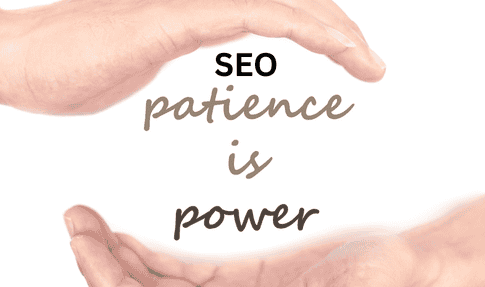When people invest in SEO, one of the first questions is: “How long will it take to see results?” The honest answer is — it depends. SEO isn’t instant. It’s a process shaped by content quality, competition, website history, and how consistent your efforts are.
Let’s look at why SEO takes time, what experts say, and what happens if you try to force fast results.
Why SEO Takes Time
Search engines like Google are built to reward helpful, trustworthy content. They don’t rank sites overnight because they want to make sure users get reliable answers. That’s why SEO is often compared to building a reputation — it grows over time through signals like content quality, backlinks, and user trust.
- Search engines test your site before moving it up in rankings.
- User signals matter — Google watches how people interact with your pages.
- Trust takes time — just like people, search engines don’t trust new sites instantly.
What SEO Experts Are Saying
SEO professionals agree that real results take patience. Here’s what leading experts say:
- John Mueller (Google Search Advocate): “Any SEO changes you make today will usually take several months to be reflected in search results.”
- Rand Fishkin (Co-founder, Moz & SparkToro): “SEO is a slow ramp-up channel. It’s about consistent investment over the long haul.”
- Aleyda Solis (International SEO Consultant): “Depending on competition and resources, you should expect results in 6 to 12 months.”
- Neil Patel (Digital Marketing Expert): “You won’t dominate search overnight. SEO takes time to build momentum, but once it does, the results are lasting.”
Together, these expert opinions confirm: SEO is a long-term investment, not a quick fix.
How E-E-A-T Impacts SEO Timelines
Google looks at E-E-A-T — which stands for Experience, Expertise, Authoritativeness, and Trustworthiness — when deciding how to rank a website. Building these qualities takes time, and that’s why SEO doesn’t show results overnight.
- Experience – Sharing real examples, personal insights, or case studies makes your content more useful and believable.
- Expertise – Well-researched, accurate content shows that you know the subject well.
- Authoritativeness – Getting mentions, backlinks, and recognition from other trusted sites doesn’t happen instantly — it builds slowly.
- Trustworthiness – A secure website (HTTPS), clear information about who is behind the content, and regular updates show Google (and users) that they can rely on you.
Websites that focus on E-E-A-T may take longer to climb the rankings, but once they do, they’re more likely to stay there for the long run.
Fast SEO vs. Sustainable SEO
| Approach | Fast SEO (Shortcuts) | Sustainable SEO (Long-Term) |
|---|---|---|
| Content | Thin, keyword-stuffed articles | Helpful, well-researched content |
| Backlinks | Bought links, spammy directories | Earned links from trusted sites |
| Results | Quick gains but unstable | Slower growth but lasting impact |
| Risk | Google penalties, lost rankings | Long-term trust and authority |
| User Value | Low, poor experience | High, answers real questions |
| Future Impact | Rankings drop when tricks fail | Rankings hold and grow steadily |
The table makes it clear: rushing SEO may give a temporary boost, but the safer path is consistent, high-quality work.
Typical SEO Timeline
| Timeframe | What Happens | Results You May See |
|---|---|---|
| 0–3 Months | Site audit, technical fixes, keyword research, on-page work | Small ranking changes, faster site speed |
| 3–6 Months | Content creation, link-building, user experience updates | Early rankings, higher impressions, traffic starting to grow |
| 6–12 Months | Authority building, more content, better internal linking | Noticeable traffic growth, stronger keyword rankings |
| 12+ Months | Content refreshes, advanced link-building, brand trust | Stable rankings, long-term conversions |
Frequently Asked Questions
Not usually. You might see small ranking shifts early, but real growth takes months.
Because Google doesn’t know your site yet. It needs time to see if your content is trustworthy and if people find it useful.
No. SEO is an ongoing process. Search engines update their algorithms, competitors keep improving, and user needs change. That means your SEO work has to keep going too.
Not directly. Ads can bring quick traffic, but they don’t improve rankings. They’re useful while your SEO efforts are still growing.
Taking shortcuts like buying backlinks or stuffing keywords might give a short boost, but it usually leads to penalties or drops in rankings later.
Conclusion
Good SEO takes time and patience. Most experts agree that it takes around 6 to 12 months to see steady, lasting results. Quick tricks may seem tempting, but they often backfire. Slow, consistent work builds trust with both Google and your audience — and that’s what brings long-term growth.
Want SEO that actually lasts? Contact us today and let’s build a strategy that works for your website’s future.





